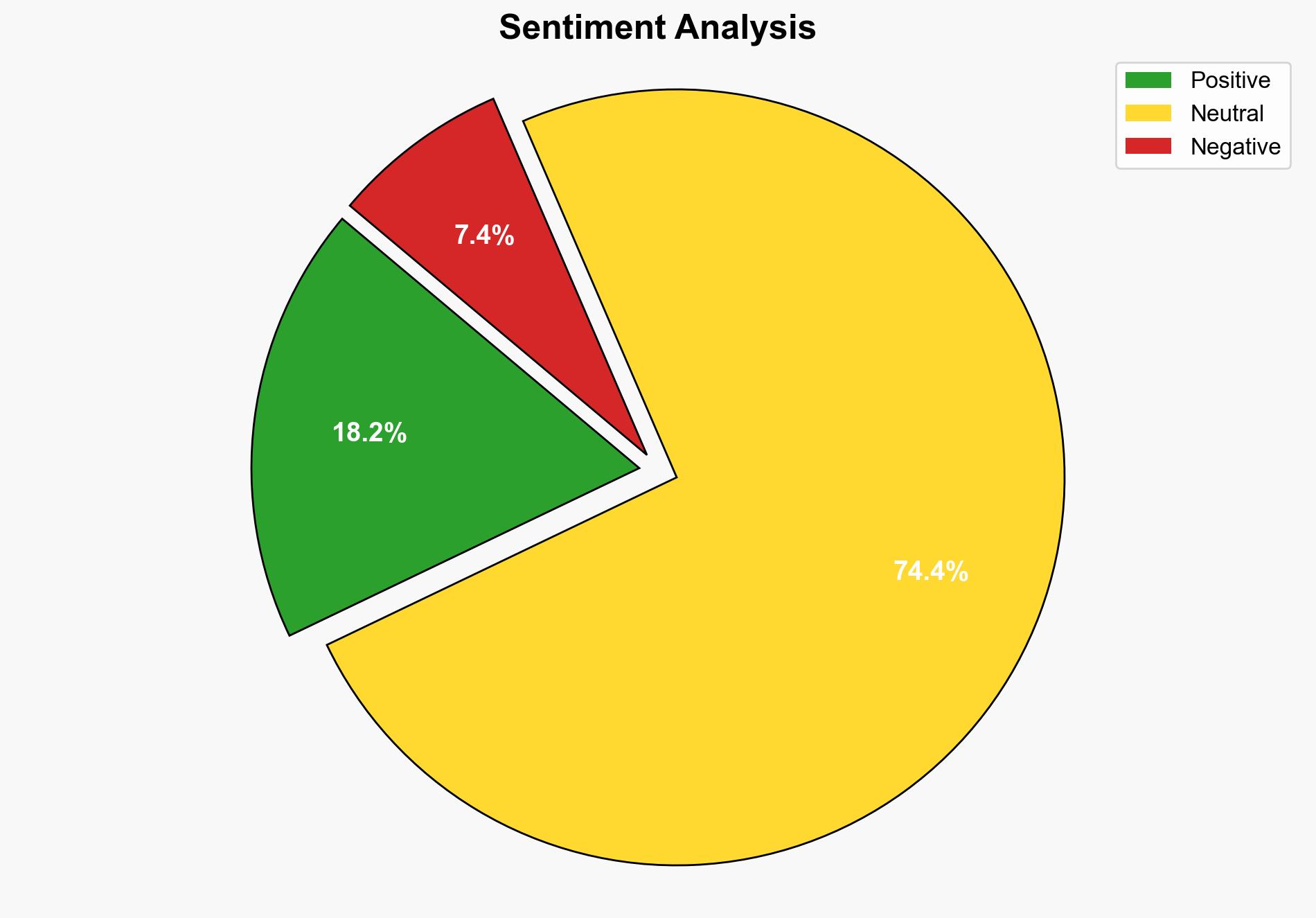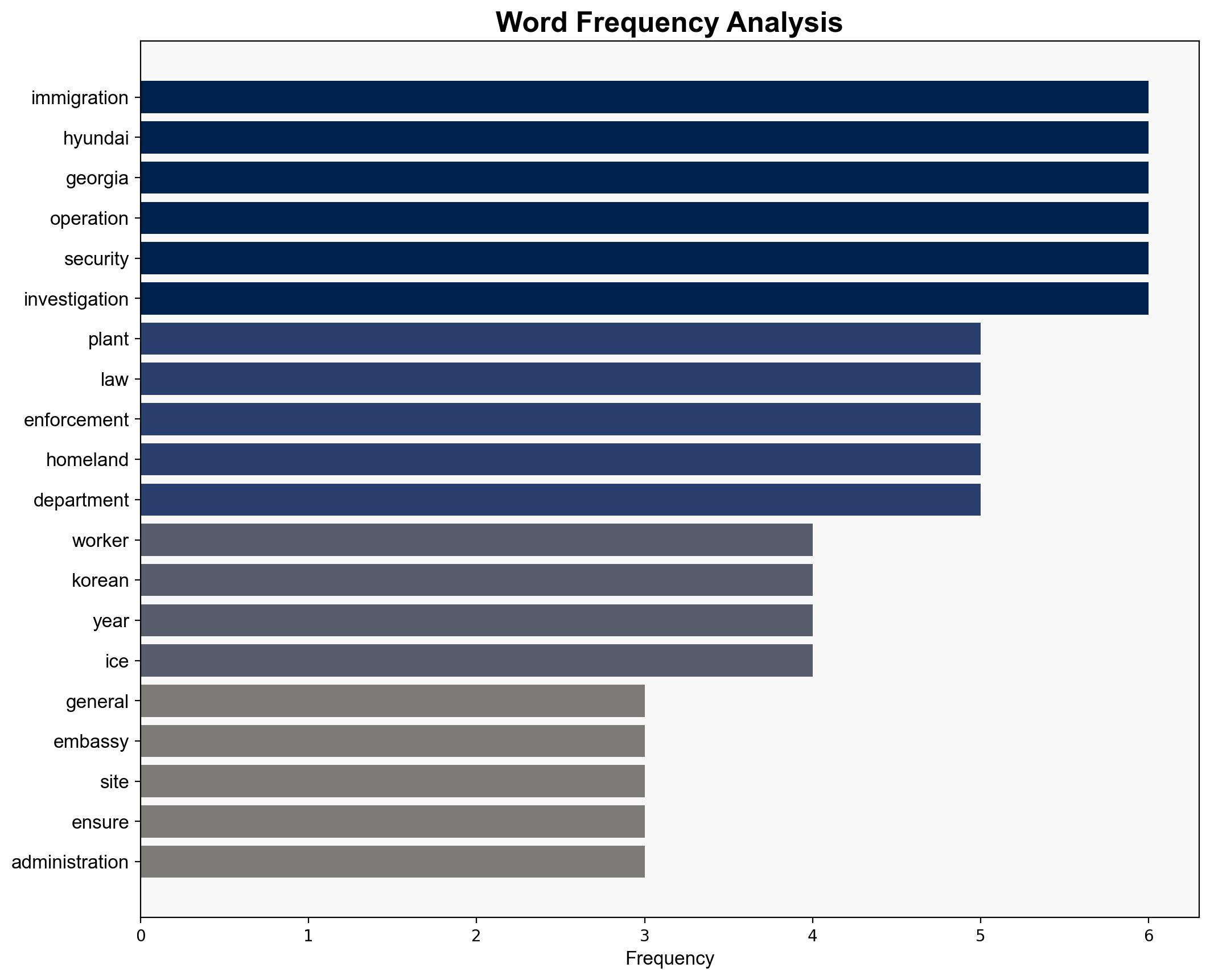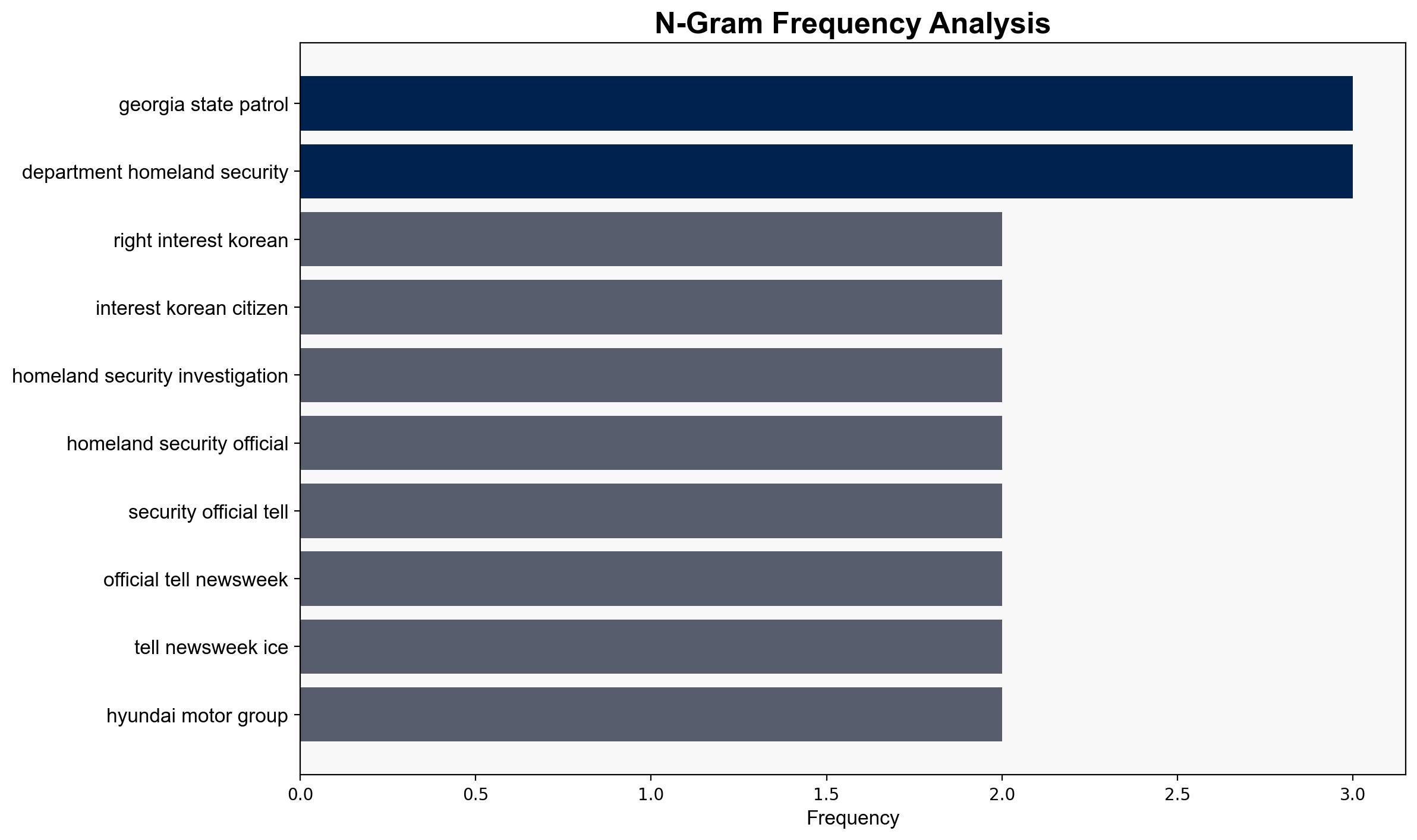South Korea Responds to ICE Raid on Hyundai Plant in Georgia – Newsweek
Published on: 2025-09-05
Intelligence Report: South Korea Responds to ICE Raid on Hyundai Plant in Georgia – Newsweek
1. BLUF (Bottom Line Up Front)
The most supported hypothesis is that the ICE raid on the Hyundai plant in Georgia is primarily a law enforcement action targeting unlawful employment practices, with secondary geopolitical implications due to South Korea’s economic interests. Confidence level: Moderate. Recommended action: Enhance diplomatic engagement to address South Korean concerns while ensuring compliance with U.S. immigration laws.
2. Competing Hypotheses
1. **Hypothesis A**: The ICE raid is a routine law enforcement operation focused on illegal employment practices at the Hyundai plant, with no direct geopolitical motivations.
– **Supporting Evidence**: The involvement of multiple U.S. federal agencies (ICE, ATF, FBI, etc.) suggests a coordinated effort to address unlawful employment practices, as indicated by the Department of Homeland Security’s statement.
2. **Hypothesis B**: The raid is a politically motivated action, potentially influenced by broader U.S. immigration policies and geopolitical tensions with South Korea.
– **Supporting Evidence**: The South Korean government’s immediate response and concern over the treatment of its citizens suggest a perception of geopolitical motivations. The historical context of aggressive U.S. immigration policies under the Trump administration adds weight to this hypothesis.
3. Key Assumptions and Red Flags
– **Assumptions**:
– Hypothesis A assumes that the primary motivation is law enforcement rather than political.
– Hypothesis B assumes a significant geopolitical dimension to the raid.
– **Red Flags**:
– Lack of detailed information on the nationalities of those detained.
– Potential bias in interpreting South Korea’s response as purely geopolitical.
– Inconsistent data regarding the impact on Hyundai’s operations.
4. Implications and Strategic Risks
– **Economic Risks**: Potential disruption to Hyundai’s operations could affect local employment and economic relations between the U.S. and South Korea.
– **Geopolitical Risks**: Strained diplomatic relations if South Korea perceives the raid as targeting its economic interests unfairly.
– **Social Risks**: Heightened tensions within immigrant communities and potential backlash against U.S. immigration policies.
5. Recommendations and Outlook
- Engage in diplomatic dialogue with South Korea to mitigate tensions and clarify the objectives of the raid.
- Ensure transparent communication regarding the legal basis and outcomes of the operation to prevent misinformation.
- Scenario Projections:
- Best Case: Improved U.S.-South Korea relations through effective diplomatic engagement.
- Worst Case: Economic and diplomatic fallout leading to strained bilateral relations.
- Most Likely: Continued diplomatic negotiations with minor economic disruptions.
6. Key Individuals and Entities
– Hyundai Motor Group
– U.S. Department of Homeland Security
– South Korean Foreign Ministry
7. Thematic Tags
national security threats, immigration policy, U.S.-South Korea relations, economic impact





